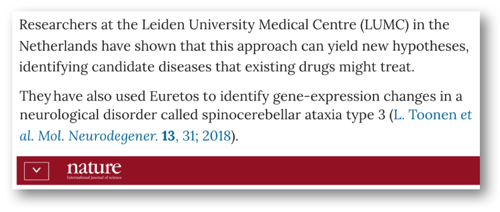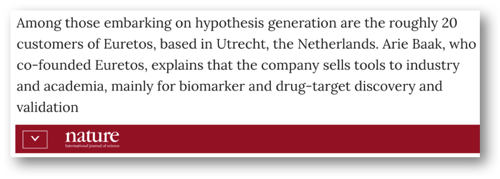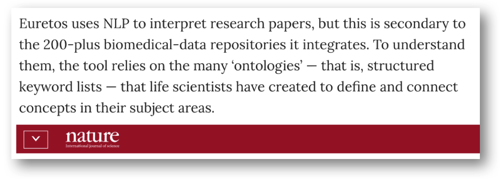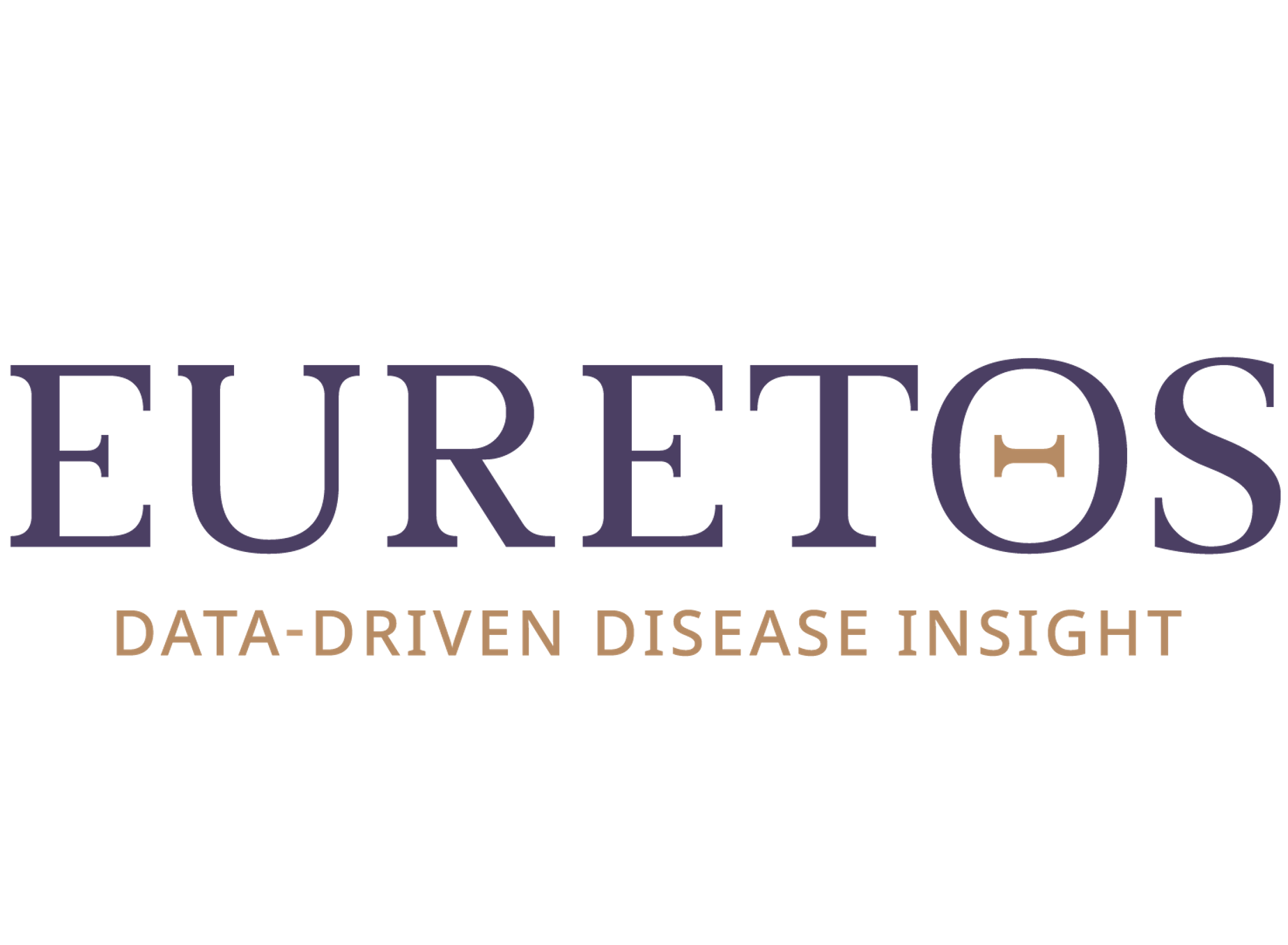Nature has just issued an in-depth article surveying innovative applications that use AI for literature and data exploration. The Euretos AI Platform is featured in the article as an example of how AI technology is already contributing today to the formulation and validation of biological research hypotheses.
 This topic of hypothesis generation was one of the key questions of the publication: can tools go beyond providing smarter search results and actually automate hypothesis generation and validation? As stated: "Many are helping researchers to validate existing scientific hypotheses. And some, by revealing hidden connections between findings, can even suggest new hypotheses for guiding experiments."
This topic of hypothesis generation was one of the key questions of the publication: can tools go beyond providing smarter search results and actually automate hypothesis generation and validation? As stated: "Many are helping researchers to validate existing scientific hypotheses. And some, by revealing hidden connections between findings, can even suggest new hypotheses for guiding experiments."
Euretos has been focusing on this area of hypothesis generation for many years now and has earlier this year announced a strategic collaboration with Elsevier, the world’s largest scientific publisher, to use the Euretos AI Platform to generate hypotheses as part of the publication process.
The Nature article highlights some of the distinctive features of the Euretos AI Platform. First of all, the article mentions that the Euretos platform enables target & biomarker discovery and validation research. In order to support this type of research activities the Euretos platform therefore also provides an analytics engine and uses machine learning algorithms, in addition to providing advanced search capabilities.
 To support this, the platform integrates over 200 multi-omics databases in addition to research papers: "Euretos uses NLP to interpret research papers, but this is secondary to the 200-plus biomedical-data repositories it integrates." In fact, just recently, Euretos has further expanded the number of sources it has integrated to over 250 and has for instance added patent data from the USPTO and EPO to the knowledge base.
To support this, the platform integrates over 200 multi-omics databases in addition to research papers: "Euretos uses NLP to interpret research papers, but this is secondary to the 200-plus biomedical-data repositories it integrates." In fact, just recently, Euretos has further expanded the number of sources it has integrated to over 250 and has for instance added patent data from the USPTO and EPO to the knowledge base.
Also, the use of Natural Language Processing (NLP) based on semantic and ontological integration is mentioned. This enables the platform to basically 'read' datasources : "To understand them, the tool relies on the many ‘ontologies’ — that is, structured keyword lists — that life scientists have created to define and connect concepts in their subject areas."
It is this combination of search, analytics and machine learning, combined in one single platform focused specifically on target/biomarker/indication discovery and validation which sets the Euretos AI Platform apart from many other providers.
As it concludes, the article mentions two examples where the Euretos AI Platform was used to generate and validate new hypotheses by one of it’s academic partners, the Leiden University Medical Centre (LUMC) in the Netherlands. On one occasion they have used the platform for indication expansion to identify candidate diseases that existing drugs might treat. Another example where the Euretos platform was used is a recent research paper that identifies gene-expression changes in a neurological disorder called spinocerebellar ataxia type 3.
 Although the Euretos AI Platform is a proven example that hypotheses can be generated through applying AI technologies, the researcher remains centre stage. In-silico hypotheses, such as provided by the Euretos AI Platform, will always require domain experts to interpret the data and ensure in vitro, in vivo and, ultimately, clinical validation.
Although the Euretos AI Platform is a proven example that hypotheses can be generated through applying AI technologies, the researcher remains centre stage. In-silico hypotheses, such as provided by the Euretos AI Platform, will always require domain experts to interpret the data and ensure in vitro, in vivo and, ultimately, clinical validation.
AI technology does not replace researchers, it empowers them.
Subscribe to our mailing list and receive our quarterly updates!
Read our Terms and Conditions

Keep up with our latest news and events. Sign up for our newsletter.